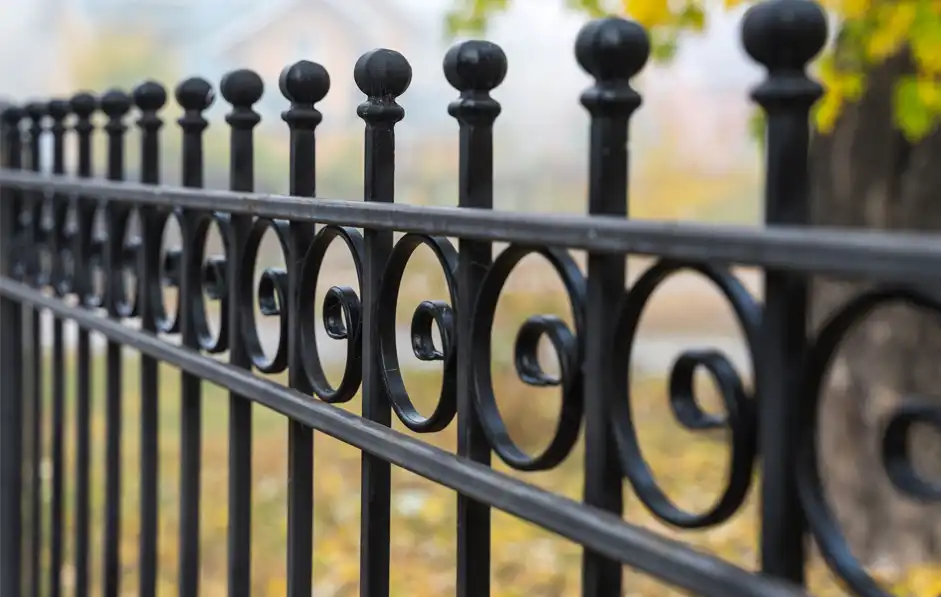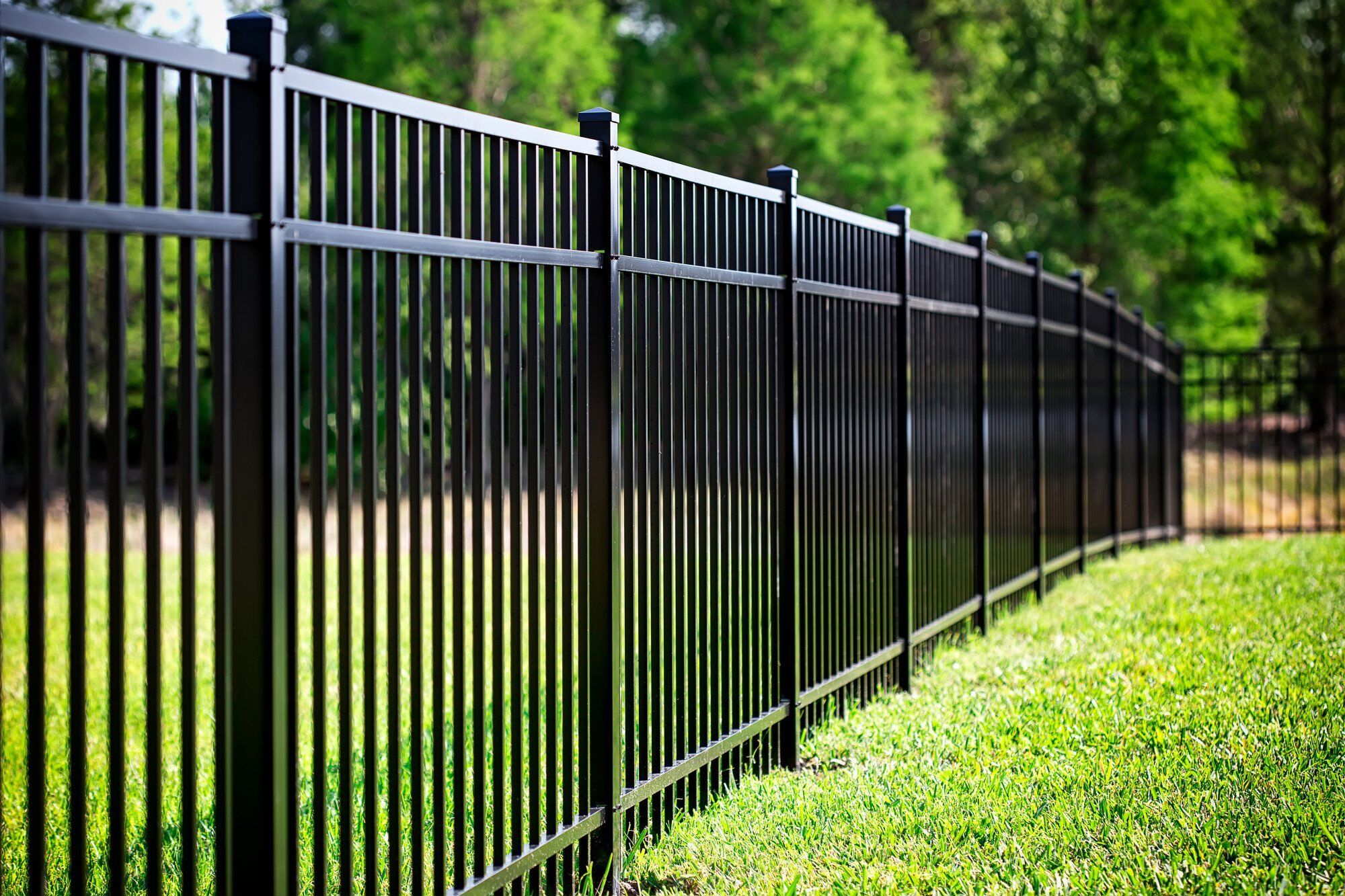All Categories
Featured
Picking the perfect fence material for your property can be a difficult job with the variety of alternatives available. Whether you're intending to raise protection, enhance personal privacy, or improve the visual allure of your home or organization, the appropriate fence can serve numerous functions. In this guide, we'll explore different secure fencing products, their advantages, and which options might be finest matched for different needs.
Benefits:
All-natural Appearance and Feeling: Wood uses a warm, natural aesthetic that matches yards, lawns, and other exterior spaces. Personalized: You can repaint or stain wood fence any kind of color, allowing for endless style possibilities. Personal privacy and Protection: When built as a strong panel, a wood fence can give superb personal privacy and security. Drawbacks:
Maintenance Required: Wood fences call for periodic maintenance to stop rot, bending, and damages from insects like termites. At risk to Climate: Exposure to snow, sunlight, and rainfall can degrade the quality of the timber over time, which implies you might require to reseal or replace boards. Best For: Homeowners seeking a standard, personalized fence with a natural appearance.
Advantages:
Lasting and sturdy: Plastic is unsusceptible to the weathering that wood fences experience, and it won't warp, split, or discolor. Low Upkeep: Unlike wood, vinyl does not call for staining or sealing. Cleansing it is as basic as washing it with water. Selection of Styles: Plastic fence is offered in many designs and shades, and some versions even mimic the look of timber. Downsides:
Higher Initial Expense: Plastic fences can be extra expensive to mount contrasted to other products, such as timber or chain link. Prone to Cracking: While long lasting, plastic can end up being weak and split in really cool temperature levels or when struck with force. Limited Modification: Unlike timber, plastic can't be conveniently modified, so your style alternatives are extra restricted. Best For: Home owners that focus on reduced upkeep and long-term resilience, and who agree to buy a higher preliminary price.
Benefits:
Inexpensive: One of one of the most budget-friendly secure fencing options, making it suitable for huge homes or locations requiring comprehensive protection. Low Maintenance: Wire mesh fence require little to no maintenance beyond periodic cleansing and repair services. Resilient and Secure: While not visually appealing, chain link fences are strong, challenging to climb, and offer a high level of security. Negative Aspects:
![]()
Absence of Personal privacy: A wire mesh fence doesn't offer much personal privacy unless you add slats or various other alterations. Industrial Look: The cable mesh may not enhance all home types, especially household homes or areas requiring an aesthetic touch. Best For: Big homes or areas where spending plan is a priority, or for those that require a solid, safe border without the need for privacy.
Benefits:
Solid and Secure: Metal fencings use exceptional security, as they are challenging to climb up and provide a durable barrier against trespassers. Long Life expectancy: Steel fences can last for years, particularly when dealt with for rust and deterioration resistance. Elegant Visual: Wrought iron and steel fencings include a sophisticated, classic aim to homes, gardens, or industrial properties. Negative Aspects:
Expensive: Metal fences, particularly functioned iron, tend to have a higher in advance expense than various other products. Upkeep Requirements: Steel and functioned iron fencings might corrosion with time otherwise appropriately maintained, needing periodic painting or treatment. Limited Personal privacy: Steel fences are normally open, so they do not use the personal privacy that solid fences like wood or vinyl can give unless integrated with various other materials. Best For: Those trying to find a high-security, decorative choice with a lengthy lifespan, specifically for high-traffic or upscale locations.
Benefits:
![]()
Reduced Maintenance: Compound fencing requires no paint, staining, or securing. It's very easy to clean with just soap and water. Resilience: Immune to rot, parasites, and climate, composite fencings last longer than conventional timber. Eco-Friendly: Numerous composite materials are made from recycled wood and plastic, lowering ecological effect. Disadvantages:
Expensive: The preliminary expense of composite fencing can be more than timber or plastic. Minimal Personalization: While readily available in various colors, composite fencings do not offer as lots of design options as wood. Heavy: Composite products are frequently heavier than various other kinds of fencing, which can make setup harder. Best For: Those that desire a low-maintenance, green alternative that combines the look of timber with boosted resilience.
Conclusion. Choosing the best secure fencing product for your home relies on a selection of variables, including your spending plan, visual choices, privacy needs, and upkeep determination. Whether you go with the classic appeal of wood, the low-maintenance advantages of vinyl, the stamina of steel, or the eco-friendly longevity of composite, selecting the most effective fencing requires careful consideration of your residential property's one-of-a-kind demands. By recognizing the advantages and limitations of each product, you can make an enlightened choice that supplies long-term value and contentment for your residential property.
- Timber Secure fencing. Timber fence is a timeless choice for several house owners due to its all-natural charm, flexibility, and ability to blend flawlessly with different building designs. Available in a range of designs, including picket, cattle ranch, and privacy rails, timber can be tailored with paint or discolor to match your desired aesthetic.
Benefits:
All-natural Appearance and Feeling: Wood uses a warm, natural aesthetic that matches yards, lawns, and other exterior spaces. Personalized: You can repaint or stain wood fence any kind of color, allowing for endless style possibilities. Personal privacy and Protection: When built as a strong panel, a wood fence can give superb personal privacy and security. Drawbacks:
Maintenance Required: Wood fences call for periodic maintenance to stop rot, bending, and damages from insects like termites. At risk to Climate: Exposure to snow, sunlight, and rainfall can degrade the quality of the timber over time, which implies you might require to reseal or replace boards. Best For: Homeowners seeking a standard, personalized fence with a natural appearance.
- Vinyl (PVC) Fence. Vinyl fencings have actually expanded in appeal due to their low upkeep and sturdiness. Made from synthetic plastic materials, plastic fences are resistant to rot, fading, and parasites, offering a clean, modern appearance with little maintenance.
Advantages:
Lasting and sturdy: Plastic is unsusceptible to the weathering that wood fences experience, and it won't warp, split, or discolor. Low Upkeep: Unlike wood, vinyl does not call for staining or sealing. Cleansing it is as basic as washing it with water. Selection of Styles: Plastic fence is offered in many designs and shades, and some versions even mimic the look of timber. Downsides:
Higher Initial Expense: Plastic fences can be extra expensive to mount contrasted to other products, such as timber or chain link. Prone to Cracking: While long lasting, plastic can end up being weak and split in really cool temperature levels or when struck with force. Limited Modification: Unlike timber, plastic can't be conveniently modified, so your style alternatives are extra restricted. Best For: Home owners that focus on reduced upkeep and long-term resilience, and who agree to buy a higher preliminary price.
- Chain Web Link Fence. Chain web link fencings are an affordable option for those searching for security without the high price. Commonly made use of in business residential or commercial properties, parks, and huge property areas, chain link fences provide a reliable limit and are available in a selection of heights.
Benefits:
Inexpensive: One of one of the most budget-friendly secure fencing options, making it suitable for huge homes or locations requiring comprehensive protection. Low Maintenance: Wire mesh fence require little to no maintenance beyond periodic cleansing and repair services. Resilient and Secure: While not visually appealing, chain link fences are strong, challenging to climb, and offer a high level of security. Negative Aspects:

Absence of Personal privacy: A wire mesh fence doesn't offer much personal privacy unless you add slats or various other alterations. Industrial Look: The cable mesh may not enhance all home types, especially household homes or areas requiring an aesthetic touch. Best For: Big homes or areas where spending plan is a priority, or for those that require a solid, safe border without the need for privacy.
- Metal Fence (Light Weight Aluminum, Steel, Wrought Iron) Metal fencings, such as aluminum, steel, and wrought iron, are preferred for their safety, sturdiness, and strength. These products are generally made use of in high-security industrial residential properties, upscale suburbs, and those seeking a sophisticated, attractive appearance.
Benefits:
Solid and Secure: Metal fencings use exceptional security, as they are challenging to climb up and provide a durable barrier against trespassers. Long Life expectancy: Steel fences can last for years, particularly when dealt with for rust and deterioration resistance. Elegant Visual: Wrought iron and steel fencings include a sophisticated, classic aim to homes, gardens, or industrial properties. Negative Aspects:
Expensive: Metal fences, particularly functioned iron, tend to have a higher in advance expense than various other products. Upkeep Requirements: Steel and functioned iron fencings might corrosion with time otherwise appropriately maintained, needing periodic painting or treatment. Limited Personal privacy: Steel fences are normally open, so they do not use the personal privacy that solid fences like wood or vinyl can give unless integrated with various other materials. Best For: Those trying to find a high-security, decorative choice with a lengthy lifespan, specifically for high-traffic or upscale locations.
- Compound Fence. Compound fencing incorporates wood fibers and plastic to create a product that mimics the look of wood but is extra long lasting and simpler to keep. It's an environmentally friendly alternative made from recycled products, making it both useful and lasting.
Benefits:

Reduced Maintenance: Compound fencing requires no paint, staining, or securing. It's very easy to clean with just soap and water. Resilience: Immune to rot, parasites, and climate, composite fencings last longer than conventional timber. Eco-Friendly: Numerous composite materials are made from recycled wood and plastic, lowering ecological effect. Disadvantages:
Expensive: The preliminary expense of composite fencing can be more than timber or plastic. Minimal Personalization: While readily available in various colors, composite fencings do not offer as lots of design options as wood. Heavy: Composite products are frequently heavier than various other kinds of fencing, which can make setup harder. Best For: Those that desire a low-maintenance, green alternative that combines the look of timber with boosted resilience.
Conclusion. Choosing the best secure fencing product for your home relies on a selection of variables, including your spending plan, visual choices, privacy needs, and upkeep determination. Whether you go with the classic appeal of wood, the low-maintenance advantages of vinyl, the stamina of steel, or the eco-friendly longevity of composite, selecting the most effective fencing requires careful consideration of your residential property's one-of-a-kind demands. By recognizing the advantages and limitations of each product, you can make an enlightened choice that supplies long-term value and contentment for your residential property.
Latest Posts
Transform Your Home with High Quality Flooring Solutions
Published Apr 21, 25
1 min read
Teen Independence Account: A Smart Start to Financial Self-reliance
Published Apr 21, 25
1 min read
NAPA AutoCare Certified: Rely on Montclare Auto Repair for Top-Tier Repairs
Published Apr 20, 25
2 min read
More
Latest Posts
Transform Your Home with High Quality Flooring Solutions
Published Apr 21, 25
1 min read
Teen Independence Account: A Smart Start to Financial Self-reliance
Published Apr 21, 25
1 min read
NAPA AutoCare Certified: Rely on Montclare Auto Repair for Top-Tier Repairs
Published Apr 20, 25
2 min read